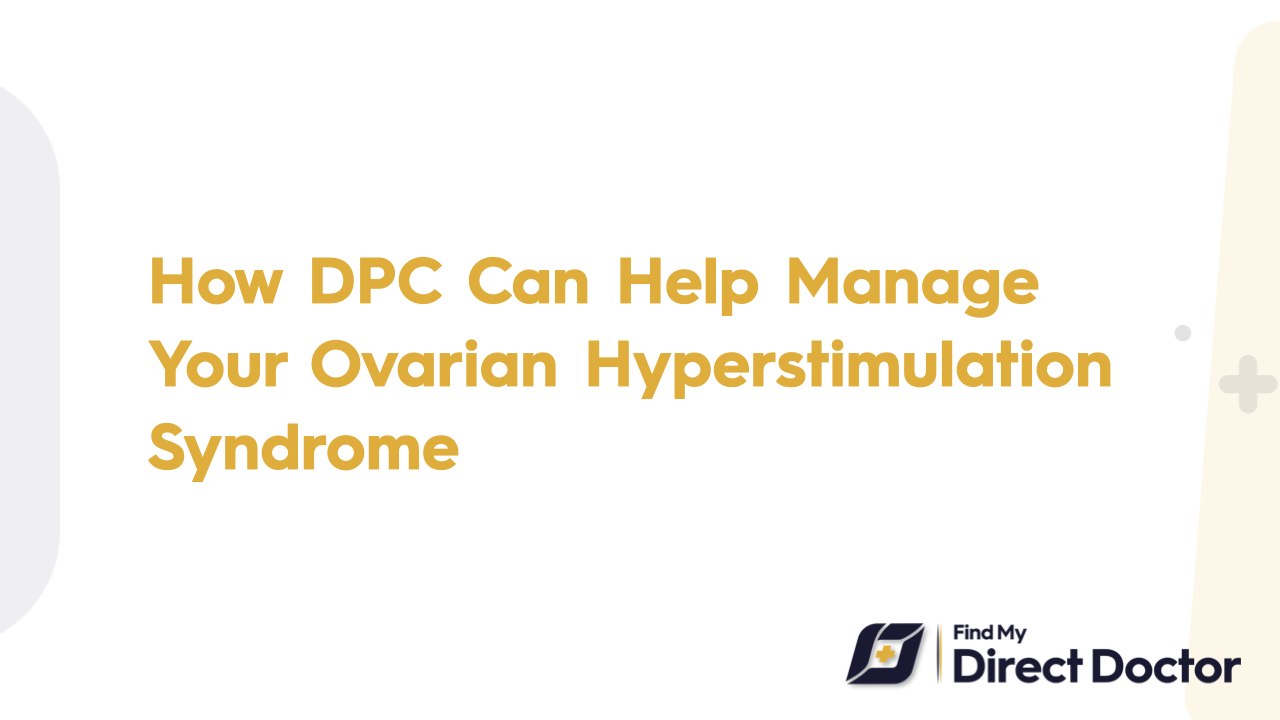



A medical disorder known as Ovarian Hyperstimulation Syndrome (OHSS) is brought on by reproductive treatments, especially those that use hormonal drugs to increase the number of eggs. Because of the overreaction to these drugs, OHSS patients experience painful and enlarged ovaries. Abdominal bloating, nausea, vomiting, fast weight gain, and shortness of breath are some of the mild to severe symptoms. Complications including blood clots, kidney problems, or fluid buildup in the chest or belly might result from severe cases. To avoid major consequences, early detection and treatment are essential.

A proactive and patient-centered strategy for controlling OHSS is offered by Direct Primary Care (DPC). DPC providers can spot early symptoms of the disease and provide prompt therapies with consistent monitoring and open communication. While keeping a careful eye out for any indications of deterioration, they can help patients manage their symptoms by suggesting rest, hydration, and dietary changes. DPC makes it easier to quickly refer patients to specialists when advanced care is required, guaranteeing a smooth and well-coordinated course of therapy for improved results.
For patients with OHSS, DPC provides many advantages, including accessibility, continuity of care, and personalized attention. DPC guarantees that patients can obtain timely support without any delays by removing the limitations of conventional insurance systems. More regular follow-ups and individualized care plans that take into account each patient's particular requirements and concerns are made possible by the direct interaction with a committed physician. By lowering the stress involved in managing a complicated illness like OHSS, this strategy promotes self-assurance and mental calm.
The treatment of OHSS in DPC is tailored to the unique symptoms and situation of each patient. Taking a comprehensive approach, providers take into account the patient's medical history, current reproductive treatment plan, and the intensity of symptoms. In addition to coordinating care with reproductive specialists, they work closely with patients to guarantee appropriate symptom relief and avoid problems. By ensuring that patients receive thorough and empathetic support, this individualized approach enhances both their entire experience and health results.
Previous Post